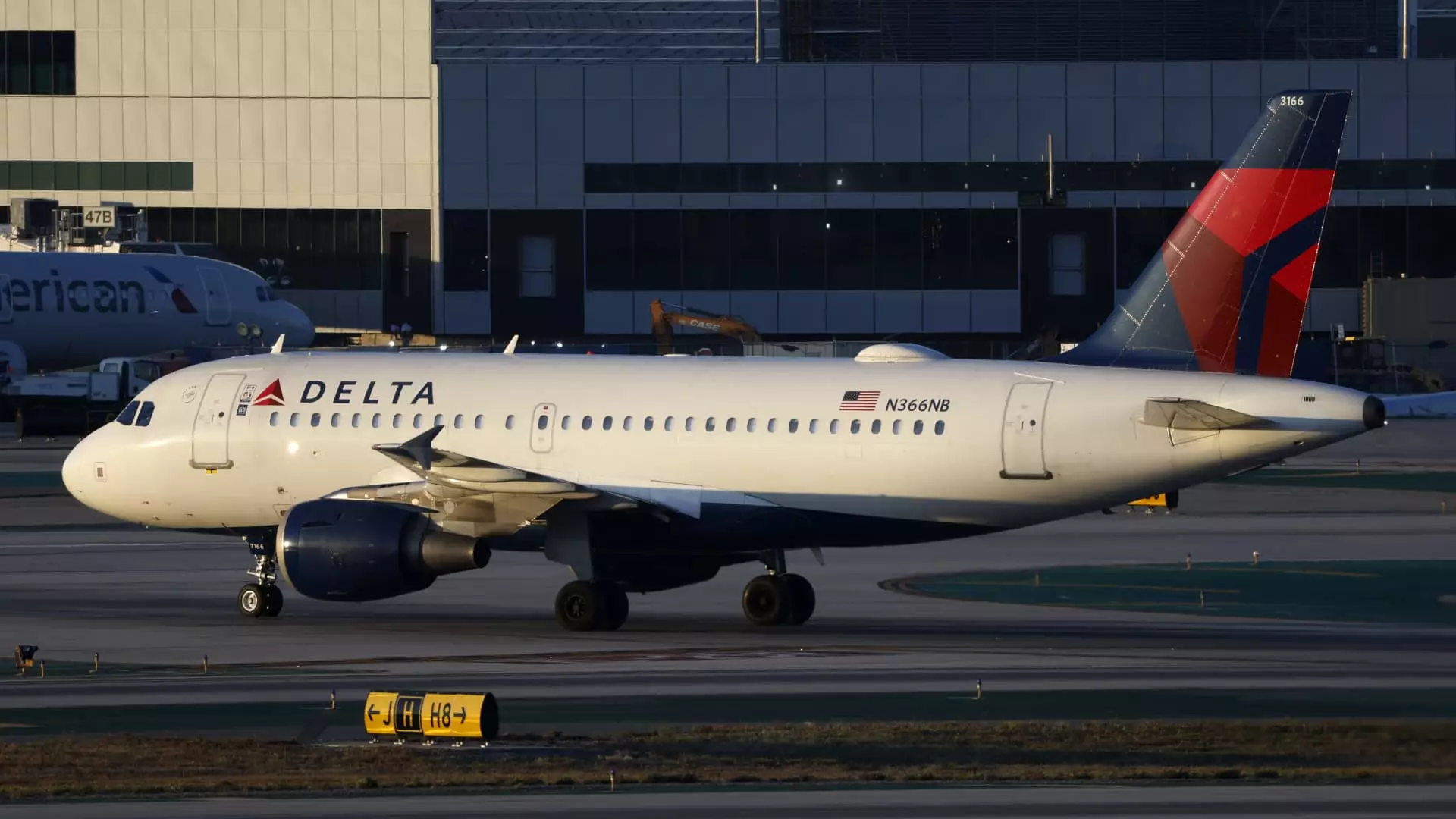In July 2023, Delta Air Lines faced a significant operational crisis stemming from an outage linked to CrowdStrike, the cybersecurity firm. This incident illuminated vulnerabilities in Delta’s technological infrastructure and swiftly escalated into a major debacle that left the airline reeling with a staggering financial impact. Approximately 7,000 flights were canceled, interrupting travel plans for millions and incurring costs of around $550 million. Delta characterized this occurrence not just as a technical failure, but as a critical operational breakdown at a time when the travel industry was peaking with summer travelers.
The financial ramifications for Delta were not just short-term. In a securities filing, the airline specified a $380 million revenue deficit directly attributed to customer refunds and compensation, which largely included monetary reimbursements and travel credits in the form of SkyMiles. This unique combination of monetary loss and brand equity deterioration raises pivotal questions about how technology failures can devastate an airline’s financial standing while further challenging its reputation within the competitive aviation sector.
Additionally, Delta reported $170 million in expenses connected to the operational recovery efforts necessitated by the outage. Interestingly, the airline acknowledged potential savings on fuel costs, amounting to approximately $50 million, due to the significant reduction in flights. However, this financial cushion pales in comparison to the overall losses incurred, underscoring the complexity of the incident’s impact.
CEO Ed Bastian’s comments reflect both the gravity of the situation and Delta’s commitment to recovering. He classified the disruption as “unacceptable,” recognizing the inconvenience experienced by both patrons and employees. Delta’s swift actions to re-establish operations speak volumes about the company’s operational dedication; however, the broader question remains: How could a leading airline, often touted for reliability, find itself in such a vulnerable position?
The airline’s issues were exacerbated in the wake of the incident, as its cancellation numbers surpassed total cancellations recorded in 2019. Such a drastic drop in service reliability prompts scrutiny not only of Delta’s response but also of the intricate web of dependencies on third-party technologies and services in the modern aviation industry.
As the unexpected fallout continues, Delta is pursuing legal action against CrowdStrike and Microsoft for damages resulting from the technology failure. In this pursuit, Delta’s legal counsel has accentuated that the outage impacted approximately 1.3 million passengers and led to the shutdown of 37,000 Delta computers. This pursuit of accountability spotlights the need for robust contingency plans and effective crisis management strategies in the increasingly interconnected world of aviation and technology.
CrowdStrike, for its part, has criticized Delta’s narrative, asserting they were proactive in addressing the crisis by offering immediate support. This exchange between the airline and technology firms indicates a larger narrative around accountability in the age of technology-driven disruptions. Add to this the assertion from Microsoft that Delta may have under-invested in its technological infrastructure relative to competitors, and you begin to see how the incident spirals beyond just an operational setback to touch on broader themes of organizational responsibility and foresight.
As the situation unfolds, the U.S. Department of Transportation’s involvement manifests a systemic concern about operational readiness in airlines. Delta’s experience underlines the critical importance of technological resilience, especially for carriers striving for premium status in a challenging landscape. The incident serves as a cautionary tale, prompting not just Delta, but the entire airline industry to re-evaluate its technological commitments.
Delta’s operational crisis highlights more than corporate misfortunes; it provides a lens through which to view the intricate interplay between air travel, technology, and the stakes of customer satisfaction. As Delta pivots toward recovery, it must also reflect on its partnerships and invest strategically in technological advancements to prevent future incidents. The effects of this outage highlight a critical juncture in the aviation industry—a need for interconnected planning, agility in processes, and forward-thinking about technology adoption and crisis management. The impact of this crisis will undoubtedly resonate through Delta’s operational policies and strategic decisions for years to come.


Leave a Reply